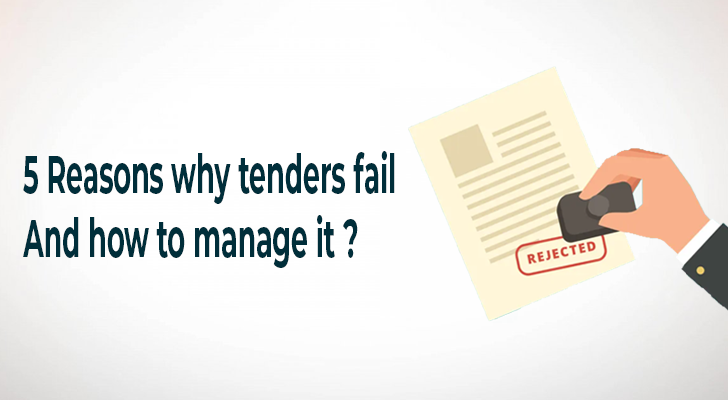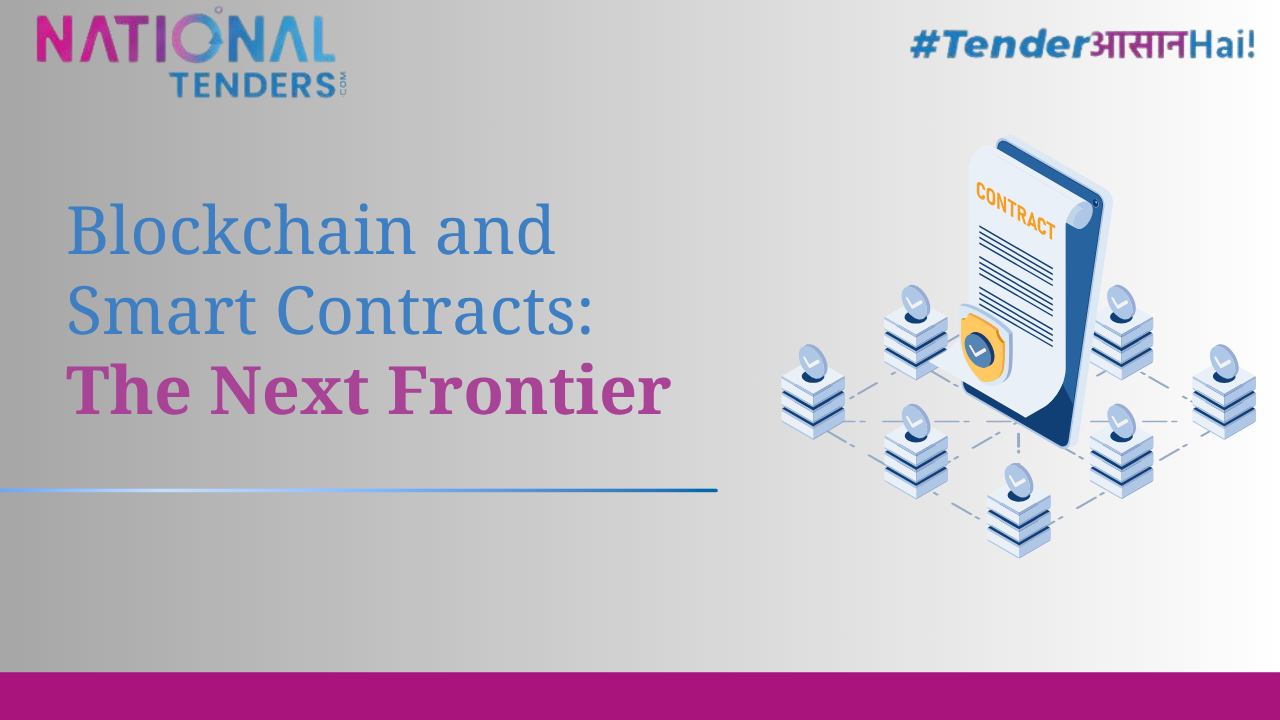- Home
- >
- Blog
OUR BLOG
A collection of stories about our people, our capabilities, our research, and the ever-changing face of our firm.

NationalTenders
5 Reasons why Tenders fail and how to manage it | National Tenders | 31 Jan, 2022
5 Reasons why Tenders fail and how to manage it | National Tenders
Are you trying to submit a tender and failed more than once? Lets analyze some points where you can improve & get the desired success you want by getting the tender you want.
Reasons why Tenders fail and how to manage it
Did you recently fail to win a tender? You probably are wondering what went wrong. You did everything you could. You applied for the right tender. You attached the required documents. You submitted the bid on time. But still, your bid failed. It is natural to face failure in your path to success. But when it happens too often, you need to introspect and find out exactly what went wrong. By understanding your shortcomings, you can be better prepared for the next time you apply for a tender.
There are certain reasons why a bid fails to win you a tender. When you understand them, you can prepare yourself better for the next tender. Your introspection must reveal certain things that are particular to your bid. But there are other general things that you need to take care of. Let’s see some of these in competitive tendering and understand how to manage them successfully:
You did not research your potential customer
What is the first thing you do before you even think about applying? You see who’s asking for the bid. You understand his needs. You can make your bid more engaging when you have a clear understanding of who your customer is. You need to understand their objectives and what they need out of the deal. Find out about their past tenders and the winning bids. Find out what the winning sellers did which led them to get the tender. You can connect with them and try to understand the buyer in depth. When you understand what exactly he wants, it is more likely to win a tender.
You did not follow the requirements
A tenders comes with its own set of specifications. These specifications are there for a reason. You need to follow them religiously. A slight ignorance can make you fail the bid. It is your guide to prepare and submit the tender. You need to make detailed notes of the requirements and prepare a checklist to follow. You need to make sure you use the types of font mentioned. You need to look for the word count limit of the tender document. If any aspect is left unnoticed, your chances of rejections go higher.
You did not provide enough evidence
The evidence which is talked about here is the work experience and project knowledge to be attached with the submission. Every point in the submission must be backed up by relevant evidence so the tendering authority can assess your viability for the given project. You need to explain why you can handle the project better than anyone else. You need to make yourself stand out with your previous work. Without relevant evidence, there is no way the tendering authority can believe what you say. It makes you more likely to lose a bid.
You submitted a generic tender document
Nothing stands out more than a copy-paste tender documentation. If you just submit a single document to every tendering authority, it is just going to leave you empty handed. Every tender is different and every tendering authority is different. You cannot expect the same tender document to work for every tender. The tendering authority is not looking for a generic tender document. They want a document catered to their needs and requirements. Read the requirements thoroughly and make a tender document that counts.
You did not match the buyers priorities
One of the most common mistakes a seller makes is he does not take the buyers priorities into account. You need to check the priority of work that they need you to do. They do specify it in the tender itself. The buyers are looking for work to be done in a specific order but you lack the infrastructure to perform it in that order. What happens then? Your bid is rejected. Their funds are allocated based on the priorities that they have set. Along with this, you need to understand the kind of work the buyer does and wants you to do. An NGO works in many different areas. You can not serve a child NGO with your specially-abled NGO resources.
As seen above, there are many mistakes you can make as a seller in the bidding process. These are just some of them. You can find more if you analyze what went wrong with your bid specifically. You can avoid making these mistakes if you have an expert with you along the way. This expert is National Tenders. With National Tenders you can rest assured that the document you send out will be error-free and will win you a tender. Contact us now.
 How E-Tendering is Transforming the Tender System in India
How E-Tendering is Transforming the Tender System in India Building Strong Vendor Partnerships in the Tender Ecosystem
Building Strong Vendor Partnerships in the Tender Ecosystem Unlocking Big Savings Through Smart Tender Strategies
Unlocking Big Savings Through Smart Tender Strategies How Generative AI Is Disrupting Tendering in 2025
How Generative AI Is Disrupting Tendering in 2025 Blockchain and Smart Contracts: The Next Frontier in Public Procurement
Blockchain and Smart Contracts: The Next Frontier in Public Procurement
SUBSCRIBE NOW
Kindly fill up the form